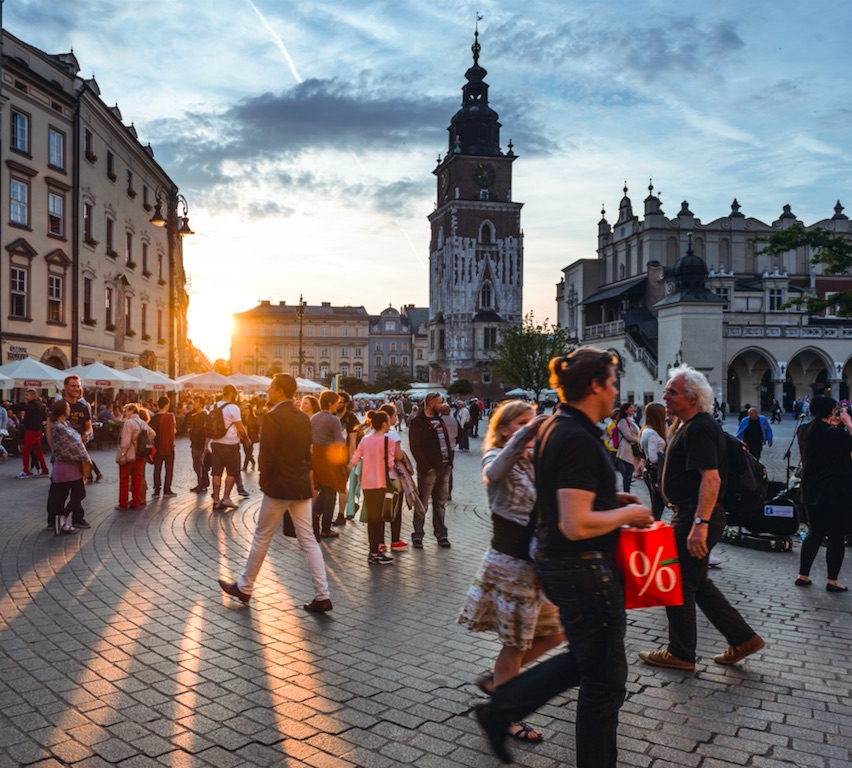Market Research in Europe

We provide Strategy Consulting and Market Research in Europe.
Automotive Market Research in Europe
Automotive market research in Europe is expected to grow rapidly with emerging technologies such as AI, IoT, EVs, and hybrid vehicles.
Eastern Europe Market Research
SIS is a leader in Eastern Europe Market Research, providing Qualitative and Quantitative Research solutions for Strategic Decision Making.
European Food Delivery Market Research
European food delivery market research analyzes food delivery trends, consumer preferences, competitors, and tech advancements in Europe.
European Market Research
For over 3 decades, SIS has conducted Qualitative Fieldwork, Focus Groups, Quantitative Data Collection, and Strategic Market Intelligence in Europe.
Focus Groups in Manchester
Focus Groups in Manchester
What do your customers really feel about your brand? In-depth focus groups in Manchester can make all the difference if you'd like to know how consumers feel.
This type of research gives you detailed feedback on everything...
London Market Research Company
SIS International Research is a London market research company with our finger on the pulse of growth and innovation in England and Great Britain.
Market Entry in Eastern Europe
Entering the Central Europe market starts with a plan, objectives and criteria. Common background information should include the following...
Market Research in Andorra
Market Research in Andorra
Andorra is a tiny country that is hard to find on the map. It lies between the borders of Spain and France in the Pyrenees Mountains. The nation is a co-principality between the two nations. They both share a certain level...
Market Research in Austria
Austria’s incorporation into the world economy has made a quantum leap over the past decade.
Market Research in Belfast (UK)
From its shipbuilding legacy to its modern tech renaissance, Belfast's fascinating business landscape is the result of market research.
Market Research in Belgium
Belgium has private enterprise, a modern economy, which takes full advantage of its central geographic location.
Market Research in Birmingham (UK)
Birmingham's diverse history, cultures, and economy require businesses to stay alert and adaptable within its dynamic landscape.
Market Research in Bosnia and Herzegovina
Grow your business with Market Research in Bosnia and Herzegovina.
Market Research in Bristol (UK)
Bristol has evolved to become a vibrant epicenter of culture, innovation, and commerce in the UK. Market research in Bristol is essential.
Market Research in Cork (Ireland)
As the heartbeat of Ireland's southern region and a burgeoning business hub, Market Research is vital to understanding the nuances of Cork.
Market Research in Crete
Market Research in Crete. SIS draws on a range of Quantitative and Qualitative research techniques. focusing on ways a company can improve...
Market Research in Denmark
Denmark has a high standard of living and was recently ranked as one of the happiest countries in the world
Market Research in Derry (Ireland)
Market research in Derry offers businesses the critical data and insights they need to navigate the city's unique economic landscape.
Market Research in Dublin
Dublin is home to the European HQ of many global tech giants – the city is uniquely at the nexus of innovation, technology, and commerce.
Market Research in Finland
Finland is a heavily-industrialized country with a main economic sector that relates to foreign trade focused on manufacturing and refining.
Market Research in France
France is one of the largest economies in the world, presenting many opportunities for business growth.
Market Research in Germany
Market Research in Germany
Market research in Germany is crucial for any company looking to establish itself in one of Europe’s most competitive and sophisticated markets.
Do you know the German market as well as you think? As the C...
Market Research in Glasgow
Glasgow has long been an epicenter of industry and commerce – and today, the city has an evolving business ecosystem as new ventures emerge.
Market Research in Ireland
Dublin, located on the east coast of Ireland, is its largest city, with a population of over 1 million people.
Market Research in Italy
Italy owns a well-diversified industrial economy and is a member of the European Union
Market Research in Jersey, Europe
SIS provides qualitative and quantitative market research in Jersey, Europe.
Market Research in Kosovo
Kosovo offers unique opportunities and challenges for businesses because of its rich history, youthful population, and strategic location.
Market Research in Leeds (UK)
Leeds is a hub for finance, commerce, and cultural diversity. As the city evolved, the significance of market research has skyrocketed.
Market Research in Liverpool | UK Focus Groups & Data Collection
SIS provides full-service research solutions in Liverpool, England.
Market Research in London
Market Research in London
In a city that mixes consumer trends and competitive landscapes, utilizing efficient market research is a critical requirement for anyone interested in understanding this market
Are you wondering how businesses...
Market Research in Luxembourg
Luxembourg has one of the highest per capita Gross Domestic Products in the world.
Market Research in Lyon | France
Lyon is the third largest city in France, located in the center east of the country. SIS provides Fieldwork, Focus, Data Collection and Strategy Research.
Market Research in Manchester
Manchester is England’s second most populous urban area. SIS provides Full-Service Qualitative, Quantitative and Strategy Research solutions in Manchester.
Market Research in Marseille | France
Marseille is the second largest city in France, which is one of the world's largest economies.
Market Research in Munich
Economically speaking, the state capital of Bavaria is one of the most vibrant regions in Germany, one of the largest economies in the world.
Market Research in Newcastle (UK)
Newcastle is more than a city with a rich industrial legacy. It's a bustling hub of innovation and opportunities for global businesses.
Market Research in Northern Ireland
To understand Northern Ireland's market, keeping up with its changing political, social, and economic landscapes is important.
Market Research in Norway
Although comparatively small in terms of its population of 4.9 million people, Norway is the world’s fifth-largest oil and second-largest gas producer.
Market Research in Paris
SIS provides Consumer, B2B, Industrial and Healthcare Market Research in Paris. Learn more.
Market Research in Poland
Poland's economy is growing as companies seek to leverage skilled labor resources and new consumer markets.
Market Research in Portugal
Portugal is a country full of opportunities for global businesses. That's why market research in Portugal is critical to get key insights about this market.
Market Research in Romania
Romania has an abundant amount of agricultural lands, industrial development and natural energy sources.
Market Research in San Marino, Europe
SIS provides qualitative and quantitative market research in San Marino, Europe.
Market Research in Scotland
SIS provides Focus Group, Fieldwork, Data Collection and Strategy Research solutions in Edinburgh and Glasgow in Scotland.
Market Research in Sheffield (UK)
Sheffield, once the heart of the UK's steel industry, has transformed into a modern urban center with a diverse economic portfolio.
Market Research in Sicily
The leading industry in Sicily is fisheries. The island also produces chemicals, processed food, fertilizers, refined oil, and natural gas.
Market Research in Slovakia
Market Research in Slovakia
Have you considered the hidden gem that is the Slovakian market for your business's growth strategy? As businesses worldwide seek new avenues for growth and expansion, understanding the nuances of the Slovakian market...
Market Research in Slovenia
With its high per capita income, Slovenia is a prosperous, stable developed nation.
Market Research in Spain
Spain is one of the largest economies in the EU and has strong advantages in many industries.
Market Research in Svalbard and Jan Mayen
SIS provides qualitative and quantitative market research in Svalbard and Jan Mayen.
Market Research in Sweden
There are many benefits in growing your business in Sweden with its skilled labor force. Learn more about Market Research in Sweden.
Market Research in Switzerland
Switzerland has one of the world’s most stable economies. Trade and industry are the country’s main sources of revenue.
Market Research in the Aland Islands
SIS International Research provides Qualitative, Quantitative and Strategy Market Research in the Aland Islands.
Market Research in the Czech Republic
The Czech Republic has one of the most advanced economies of the developing democracies in Eastern and Central Europe.
Market Research in the Faroe Islands
SIS International Research provides Qualitative, Quantitative and Strategy Market Research in the Faroe Islands.
Market Research in the Isle of Man
Market research in the Isle of Man offers businesses a comprehensive approach to understand this market and delivers interesting opportunities for businesses.
Market Research in The Netherlands
The Netherlands is a leading European Economy and is a major player in the Global Economy.
Market Research in the United Kingdom
UK is the sixth largest economy of the world and the third largest in Europe. Learn more about conducting Market Research in the UNited Kingdom.
Market Research in the Vatican
SIS International Research provides Qualitative, Quantitative and Strategy Market Research in the Vatican.
Market Research in Turkey
At SIS International Market Research, Turkey, we help businesses collect market insights and develop strategies.
Market Research in Ukraine
The Ukraine has seen many changes over the past few years. Learn more about business opportunities and Market Research in the Ukraine.
Market Research in Wales (UK)
Wales is a dynamic economic region with its own set of consumer behaviors, industry strengths, and market challenges.
Nordic Market Research
NORDIC MARKET RESEARCH
Nordic market research is essential for businesses looking to navigate the unique economic landscapes of Scandinavia, including Sweden, Norway, Denmark, Finland, and Iceland. These countries are known for their strong economies,...
Qualitative Research in London
Qualitative Research in London
Qualitative research is important because of its ability to provide actionable insights that drive strategic decision-making.
How do you get to the bottom of what drives your customers? Qualitative...
Quantitative Research in London
Quantitative Research in London
Quantitative research in London is a game-changer for businesses trying to keep up with shifting trends. This data-driven approach allows companies to measure key metrics like customer behavior, purchasing patterns,...



















































































